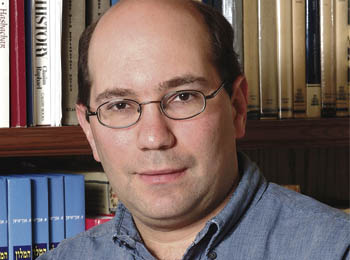When Prime Minister Stephen Harper visits Israel this month, he can expect the usual political itinerary filled with ancient and eternal symbols such as the Western Wall, moving memorials like Yad Vashem and marathon meetings with politicians. Still, he should leave the beaten path, too, to learn about the meaning of Zionism as Jewish nationalism – because Jews are a people, not just a religion; to see Israeli democracy in action; to fix some Canadian diplomatic anomalies, and, most importantly, to see the wonderful partnerships that express the shared values uniting Israel and Canada.
Mr. Harper, beware: it’s too easy to rush through your Israel trip without deepening your understanding of Israel, the Jewish People and Zionism. The Western Wall can feel like solely a religious site as you don a paper kippah and see everyone around you praying and swaying. Yad Vashem can make Israel seem only to be a response to the Holocaust. And meetings about the Palestinian problem and the Iranian nuclear threat can make Israel feel like one big embattled headache.
But that’s not all Israel is.
To learn about the Jewish national past as the basis of today’s nation state, perhaps Harper’s security people could allow him to walk out of the crudely – but accurately – named Dung Gate and visit the City of David. The remains of a 3,000-year-old Davidic palace and the impressive water tunnel that King Hezekiah hewed through hard Jerusalem rock 2,700 years ago frame the Jewish story as one of kings making political and military decisions, not just priests and rabbis teaching religion and ethics. A visit to Jerusalem’s Theodor Herzl Museum – not just Herzl’s grave – or the Menachem Begin Center – will root the story of Zionism in 19th-century nationalism, again emphasizing Judaism’s national dimension, which yearned for fulfilment by restoring this ancient displaced people to their historic homeland and building a modern state there, decades before the Holocaust.
Quick side trips either to the Jerusalem Venture Partner’s Media Quarter or the PICO – People-Ideas-Community-Opportunities – creative work-and-think space in Talpiot will bring alive Israel’s cutting-edge entrepreneurship and its unique position as the Altneuland, Old-New Land, fulfilling Herzl’s dream.
To see Israeli democracy in action, Harper should wander around Jerusalem’s colourful Machaneh Yehudah market, tasting Israel’s diversity. There he can stop at a news kiosk, buy half a dozen Israeli newspapers, then sit at a cafe with a translator translating the headlines and the conversations around him. There he will experience a thriving pluralistic, multi-ethnic, poly-lingual democracy in action, even in a Jewish state that is 80 per cent Jewish.
Less fun, but equally necessary, is a tough managerial trip to the various Canadian diplomatic and NGO facilities, where he will confront civil servants who don’t always follow his policies or share his vision on how to progress in the Middle East. All too often, these representatives of the Canadian people blatantly favour Palestinians, and even the occasional Palestinian rejectionist. Harper should insist that no Canadian diplomats or activists on the Canadian federal payroll undermine the careful, anti-terrorist, anti-anti-Zionist, pro-Israel and pro-peace approach he and his foreign minister, John Baird, have developed.
More fun will be seeing all the good that Canadians have done in Israel. In Jerusalem, let him scramble up my jogging path – the zigzag walkway leading up Mount Zion to Zion Gate, which was landscaped decades ago by the Canadian branch of the Jewish National Fund. In Tel Aviv, let him ride to the top of the Azrieli Center to see what one Polish-born Canadian-Israeli entrepreneur has achieved. And let him peruse the list of fellowships, scholarships, social welfare program and educational initiatives that Canadian philanthropists have sponsored. These for-profit and philanthropic initiatives are helping the world and building an important Canadian-Israeli bridge. Once inspired, the prime minister can push the Canada Revenue Agency to be more encouraging of these projects, many of which justifiably earn Canadian tax deductions, implicitly including the Canadian taxpayer in these humanitarian, globe-improving efforts.
There will inevitably be serious meetings with Israel’s political leadership. But I also hope Harper has enough exposure to Israel in all its colour, grandeur and history.
I also hope he has enough contact with regular Israelis who want to give him a simple message, “Todah rabah,” thank you, for standing tall and supporting Israel steadfastly, courageously and honourably.
